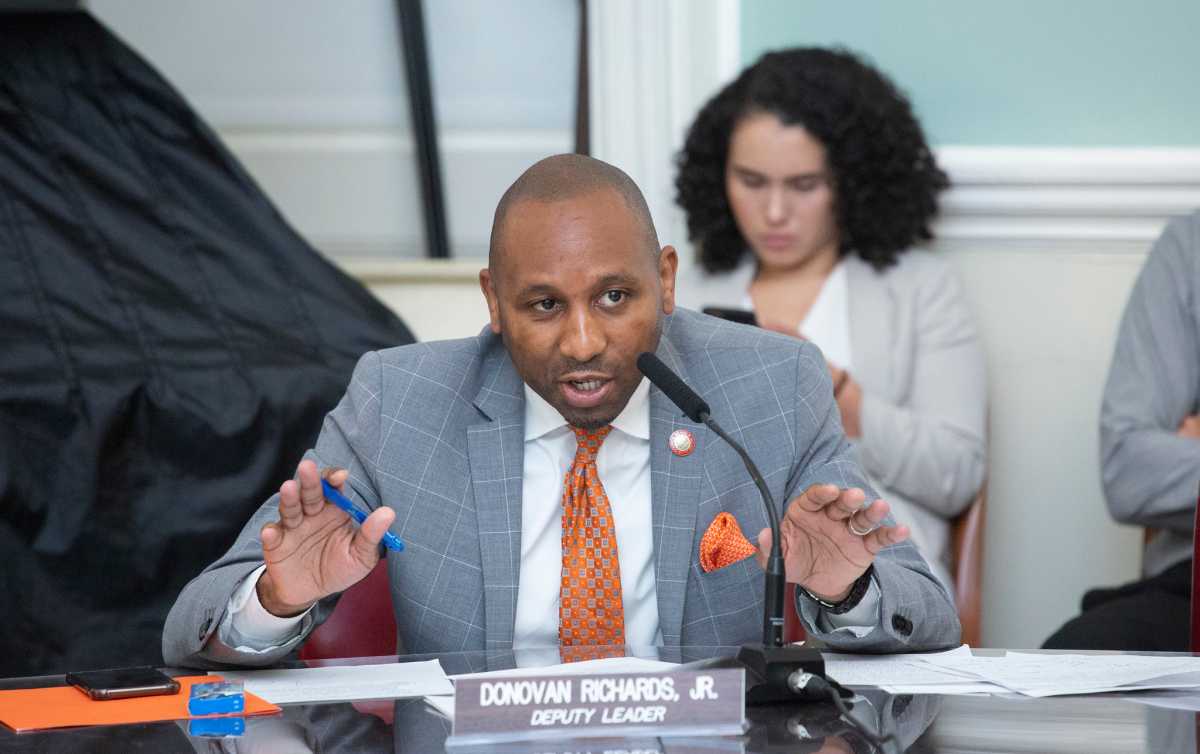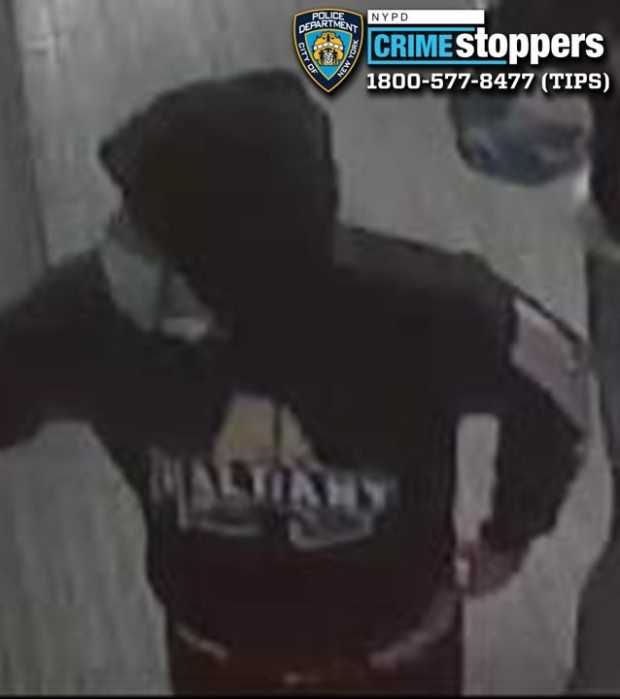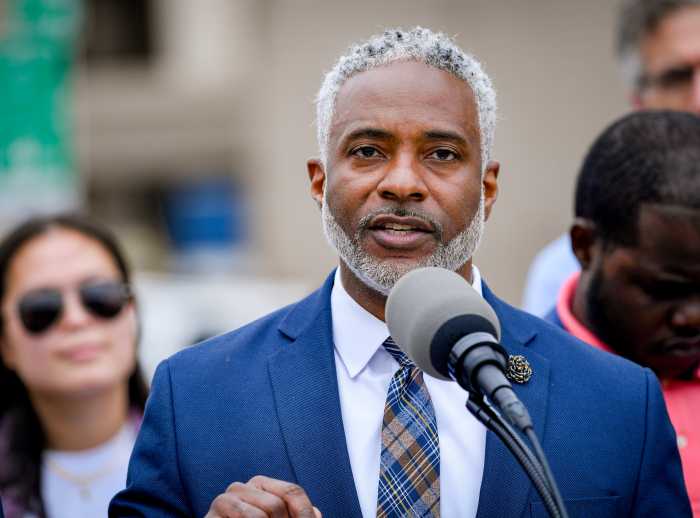When Queens Councilman Donovan Richards read a recent story about a doorman in a Manhattan building who repeatedly sent pictures of his junk to female tenants as they walked by him, he was shocked by the outcome once he got caught.
Though the pervert ultimately lost his job, the victims couldn’t pursue any further justice.
“It’s not a crime right now to send someone intimate images or lewd images,” said Jordan Gibbons, Richards’ spokesperson.
Since learning of this case, Richards has co-sponsored Staten Island Councilman Joseph Borelli’s bill that would take a step toward criminalizing subway pervs who airdrop — or use other forms of electronic communication — to send unwanted sexually explicit to unsuspecting victims around the city. It would confront offenders with up to one year behind bars or a $1,000 fine.
“Anyone who has been to one of my hearings knows I oppose the expansion of the criminal justice system, but there really is no justification for this kind of conduct. It’s not a crime of poverty. It’s really just a matter of basic decency,” said Richards in a recent meeting on the Committee of Public Safety.
During the hearing, Richards made a clear case that as it stands police have no tool to go after genitalia airdroppers, but another question popped up during the conversation. How do you enforce anti-harassment legislation when the design flaws in the software provide no record or proof of who the sender was?
“We’re definitely aware that there are difficulties in enforcing it,” said Gibbons.
Richards attempted to address those difficulties by asking NYPD representatives about what kind of role companies like Apple play during investigations.
“When we subpoena Apple and most social media companies, they’re very receptive as long as we have the proper security clearance,” said NYPD Assistant Chief James Essig.
But when Richards pushed further about what kind of digital footprint a sender leaves on their recipients phone, he reached the limits of the NYPD’s technological savvy.
“I’ll update you on whether it’s just them updating their software so that there are safeguards in place,” said Executive Director of Legislative Affairs Oleg Chernyavsky.
The law has not gone up for a vote in the City Council yet.

































